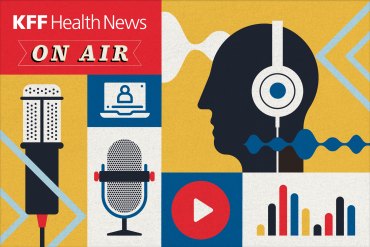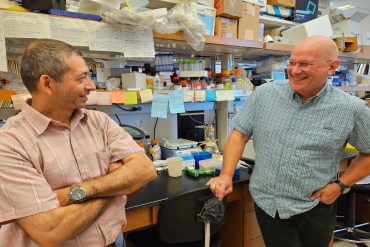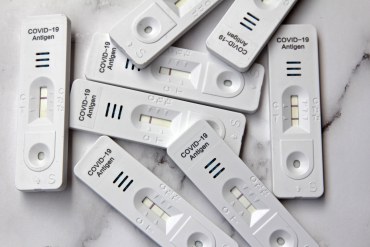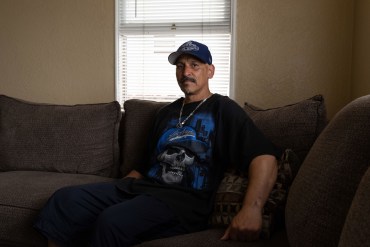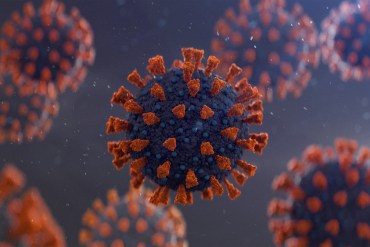Workers Pay the Price While Congress and Employers Debate Need for Heat Regulations
Studies suggest official numbers vastly underestimate heat-related injuries and illness on the job. To institute protections, the government must calculate their cost — and the cost of inaction.
Journalists Track Hospitals’ Delivery of Charity Care and the Menace of ‘Forever Chemicals’
KFF Health News and California Healthline staff made the rounds on national and local media this week to discuss their stories. Here’s a collection of their appearances.
The Painful Pandemic Lessons Mandy Cohen Carries to the CDC
Mandy Cohen, the new director of the Centers for Disease Control and Prevention, earned praise for her leadership and communication as the face of North Carolina’s response to covid-19. People in the state’s most vulnerable communities tell a more complicated story.
Doctors Advocate Fresh Efforts to Combat Chagas Disease, a Silent Killer
Chagas disease, caused by a parasite, affects people primarily in rural Latin America. But an estimated 300,000 residents of the U.S. have the disease, which can cause serious heart problems. Patient advocates call for much more aggressive efforts to fight it.
Médicos abogan por nuevos esfuerzos para combatir al Chagas, un asesino silencioso
La enfermedad de Chagas, causada por un parásito, afecta principalmente a personas en las zonas rurales de Latinoamérica. Pero se estima que 300,000 personas en Estados Unidos viven con la enfermedad, que puede causar problemas cardíacos graves. Defensores de pacientes piden esfuerzos mucho más agresivos para combatirla.
The CDC Works to Overhaul Lab Operations After Covid Test Flop
In early 2020, U.S. public health labs received covid-19 tests from the Centers for Disease Control and Prevention that were flawed, as a result of poor design and contamination. Now the CDC is overhauling its lab operations, but efforts to be better prepared for future threats won’t be easy, observers say.
Mujeres negras sopesan riesgos emergentes de alisadores para el cabello “adictivos”
Los alisadores pueden contener carcinógenos, como agentes liberadores de formaldehído, ftalatos y otros compuestos que alteran el sistema endócrino, según estudios de los Institutos Nacionales de Salud.
Black Women Weigh Emerging Risks of ‘Creamy Crack’ Hair Straighteners
Social and economic pressures have long compelled Black girls and women to straighten their hair. But mounting evidence shows chemical straighteners — products with little regulatory oversight — may pose cancer and other health risks.
Be Aware: Someone Could Steal Your Medical Records and Bill You for Their Care
Consumers should know that this type of fraud can happen, whether from a large-scale breach or theft of an individual’s data. The result could be thousands of dollars in medical bills.
Journalists Explore Shortage of Foster Care Sites and Prevalence of Covid Misinformation
KFF Health News and California Healthline staff made the rounds on national and local media this week to discuss their stories. Here’s a collection of their appearances.
As Nonprofit Hospitals Reap Big Tax Breaks, States Scrutinize Their Required Charity Spending
Nonprofit hospitals avoid paying taxes if they provide community benefits such as charity care. More states are examining that trade-off, scrutinizing the extent of hospitals’ spending on their communities.
Journalists Unpack Facility School Closures and Federal Investment in Crisis Hotlines
KFF Health News and California Healthline staff made the rounds on national and local media this week to discuss their stories. Here’s a collection of their appearances.
A Covid Test Medicare Scam May Be a Trial Run for Further Fraud
Before the covid-19 public health emergency ended, Medicare advocates around the country noticed a rise in complaints from beneficiaries who received at-home covid tests they never requested. Bad actors may have used seniors’ Medicare information to improperly bill the federal government — and could do it again, say federal investigators.
Estafas a Medicare con pruebas para covid pueden generar otros fraudes
La cobertura de Medicare para las pruebas caseras de covid-19 finalizó hace pocos días, pero las estafas generadas por este beneficio temporal podrían tener consecuencias persistentes para las personas mayores.
As More Hospitals Create Police Forces, Critics Warn of Pitfalls
Nearly 30 states have active or proposed laws authorizing independent hospital police forces. Groups representing nurses and hospitals say the laws address the daily realities of patients who become aggressive or agitated. But critics worry about unintended consequences.
Drive-Thru Baby Showers Serve Express Needs of Pregnant Veterans in Atlanta
Women are the fastest-growing group among U.S. veterans. The Department of Veterans Affairs says it is working to meet their health needs, including pregnancy care.
California Confronts Overdose Epidemic Among Former Prison Inmates
Individuals newly released from prison are 40 times as likely to die of opioid overdoses than members of the general population, researchers say. In response, California corrections officials aim to arm departing inmates with an antidote that can be used to reverse the effects of opioid poisoning.
Lead Contamination Surfaces in Affluent Atlanta Neighborhood
The Environmental Protection Agency recently confirmed high lead levels in an upscale Atlanta neighborhood. The location stands in contrast to many polluted sites investigated by the federal Superfund program — often in former industrial or waste disposal areas where environmental racism has left marginalized groups at risk.
Journalists Discuss Enduring Effects of Long Covid and Handling of Opioid Settlement Funds
KFF Health News and California Healthline staff made the rounds on national and local media this week to discuss their stories. Here’s a collection of their appearances.
As Federal Emergency Declaration Expires, the Picture of the Pandemic Grows Fuzzier
The pandemic gave federal officials expanded power to access crucial data about the spread of covid-19, but that authority will change when the public health emergency sunsets in May. That, along with the end of popular covid trackers, will make it harder for policymakers and the public to keep an eye on covid and other threats.





